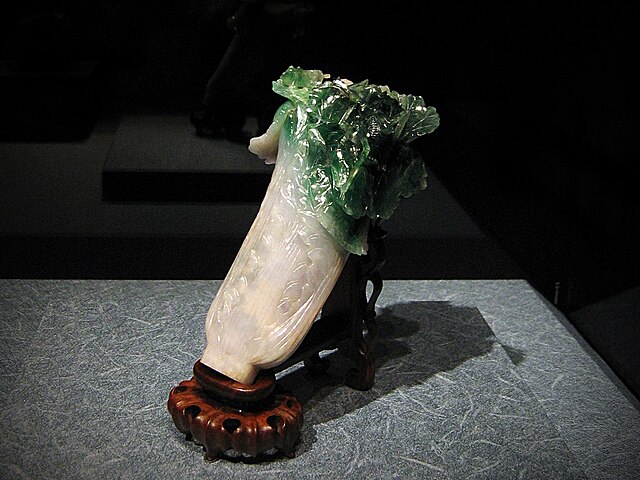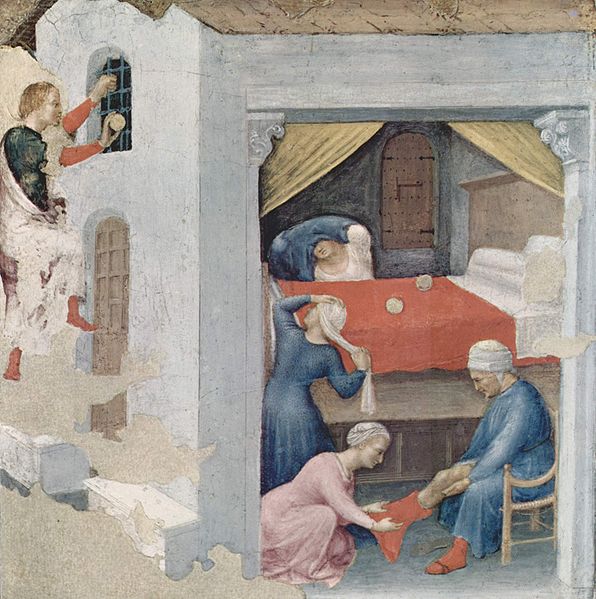A dowry is a payment, such as property or money, paid by the bride's family to the groom or his family at the time of marriage. Dowry contrasts with the related concepts of bride price and dower. While bride price or bride service is a payment by the groom, or his family, to the bride, or her family, dowry is the wealth transferred from the bride, or her family, to the groom, or his family. Similarly, dower is the property settled on the bride herself, by the groom at the time of marriage, and which remains under her ownership and control.
Aussteuerschrank – a dowry cabinet, currently in a German museum in Hauenstein.
Jadeite Cabbage – Jin received it as part of her dowry for her wedding to Guangxu, in 1889; originally displayed in Forbidden City (Beijing), it is now in National Palace Museum (Taipei City).
The dowry for the three virgins (Gentile da Fabriano, c. 1425, Pinacoteca Vaticana, Rome), part of the Saint Nicholas legend.
In an 1828 "Wife Wanted" advertisement in Cornwall, a man claiming a "great taste for building" pledges to apply a prospective wife's dowry-like £1000+ to build property that will be "settled on her for life".
Bride price, bride-dowry, bride-wealth, bride service or bride token, is money, property, or other form of wealth paid by a groom or his family to the woman or the family of the woman he will be married to or is just about to marry. Bride dowry is equivalent to dowry paid to the groom in some cultures, or used by the bride to help establish the new household, and dower, which is property settled on the bride herself by the groom at the time of marriage. Some cultures may practice both simultaneously. Many cultures practiced bride dowry prior to existing records.
A Papuan bride dowry basket piece from the early 20th century. In the collection of The Children's Museum of Indianapolis.





